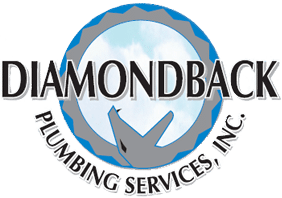Dealing with a grease-clogged drain can be a slippery slope for many homeowners.
Whether you’re facing a minor blockage or a major backup, our blog post will help you navigate the do’s and don’ts of drain management with practical solutions that keep your pipes clear and functioning.
Stay tuned as we dive into these professional insights to keep your home’s plumbing in peak condition.
Understanding Grease Clogs in Drains: An In-Depth Plumbing Guide for Homeowners
Grease clogs are a prevalent issue in household plumbing, typically originating in the kitchen sink, where waste and food remnants are frequently disposed of.
Over time, substances like cooking oils and fats, which may appear liquid during disposal, cool down and solidify within the pipes. This gradual accumulation restricts water flow and can provoke complete blockages, necessitating a thorough cleaning service.
Proper kitchen maintenance, like scraping plates clean before washing, using sink strainers, and regular drain cleaning routines, can greatly diminish the likelihood of these frustrating grease buildups. Remember, your house’s plumbing system is not a waste bin—treating it as such can lead to vexing clogs and costly repairs.
Do-It-Yourself Solutions for Grease-Clogged Drains
Although you may need to contact a technician for major drain clogs, there are a handful of DIY techniques that you can try if you want to tackle the clog by yourself. Some of these techniques include:
- Boiling Water Treatment: Carefully pour a pot of boiling water down the drain to melt and dislodge minor grease blockages.
- Vinegar and Baking Soda: Mix 1/3 cup of baking soda with 1/3 cup of vinegar, which will create a fizzing action and can help break down the grease buildup.
- Dish Soap and Hot Water: Add two tablespoons of liquid dish detergent into a large pot of boiling water. Pour the boiling water down the drain to cut through the grease.
- Plunger: Using a plunger can occasionally dislodge smaller greasy clogs. Make sure to cover any overflow spouts before plunging to ensure efficient pressure.
- Enzyme-type Cleaner: Use an environmentally friendly enzyme-based cleaner that can dissolve organic matter (such as grease) without harming your pipes or the environment.
While these methods can temporarily fix grease blockages, some situations may require professional intervention. Stubborn or recurrent clogs are a sign of more serious plumbing issues that could escalate if not properly handled. For those instances, it’s best to call a professional plumber who has the right tools and expertise to address the problem effectively.
Keeping your plumbing system in optimum condition sometimes means knowing when to hand it over to the experts. If your DIY solutions aren’t cutting it, feel free to reach out to a trusted professional.
Prevention Tips for Grease Buildup in Pipes
Keeping your plumbing system in tip-top shape is essential if you want to maintain a healthy, happy house. That means that you need to make sure that your pipes and drains stay clean.
If you want to keep your plumbing system in good condition, we suggest using the following prevention tips:
Regular Kitchen Waste Management
Handling kitchen waste responsibly is crucial. Always wipe off grease from pots and pans with a paper towel before washing them. Dispose of oil and fat in a sealed container, not down the sink, to prevent grease from reaching the drainage system.
Cool It Down
Let the grease cool and solidify in your cooking pan before disposal. Once solidified, it can be thrown away with regular trash or composted, if applicable. This practice prevents liquid grease from entering the drains and causing clogs.
Hot Water Flushing
Make it a habit to flush your kitchen drain with hot water at least once a week. This can help prevent the early stages of grease buildup by keeping the inner surfaces of pipes clean.
Use Strainers
Sink strainers are simple yet effective tools that catch food particles and prevent them from flowing into the drain. They should be cleaned regularly to maintain their efficiency in reducing grease clogs.
Routine Professional Maintenance
Consider scheduling regular maintenance checks with a professional plumber. They can perform deep cleaning that DIY methods cannot achieve, ensuring your pipes stay clear of severe grease buildup in the long run.
Environmental Considerations of Grease Disposal
When considering environmentally friendly ways to dispose of kitchen grease, it’s important to avoid washing it down the drain as it can lead to serious plumbing and environmental problems.
Instead, opt for sustainable methods like collecting cooled grease in a non-recyclable container and tossing it in the trash or repurposing clean, used cooking oil for homemade biodiesel production. Community recycling programs may also accept cooking oil, which they can convert into alternative fuels or other environmentally responsible products.
Composting is another viable option for small amounts of plant-based oils, which can break down naturally—though this should be done in moderation to avoid attracting pests. Choosing any of these eco-conscious disposal methods contributes to a healthier planet while keeping your drains clog-free.
Conclusion
In conclusion, dealing with a grease-clogged drain or pipe requires a combination of proactive measures and effective remedies.
From simple kitchen best practices to eco-friendly disposal options, there are numerous strategies homeowners can employ to prevent and address this common household issue. Consistently applying the tips outlined in this guide will not only maintain your plumbing but also contribute to the well-being of our environment.
If you encounter a difficult clog or require expert plumbing services, remember that the Diamondback Plumbing & Cooling professionals in Phoenix, Arizona, are just a call away.
Their experienced team is equipped to handle even the most stubborn grease blockages, ensuring your home’s plumbing system functions smoothly. Don’t let a clogged drain disrupt your day—contact Diamondback Plumbing & Cooling for the swiftest, most reliable assistance in the industry.
For expert advice or to schedule a service visit, contact Diamondback Plumbing & Cooling today and experience the peace of mind that comes with expert care for your pipes.
